Category Archives: Seasonal Allergies
Managing Seasonal Allergies in NYC
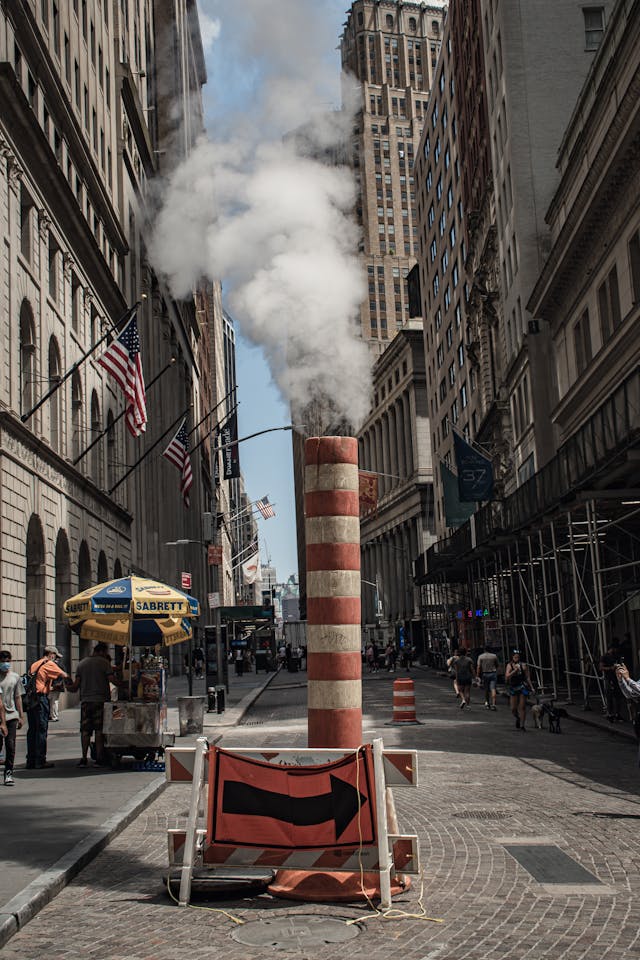 What are the best strategies for managing seasonal allergies in NYC? Seasonal allergies can be challenging, especially in a bustling city like New York. Here are some tips to manage them effectively.
What are the best strategies for managing seasonal allergies in NYC? Seasonal allergies can be challenging, especially in a bustling city like New York. Here are some tips to manage them effectively.
Managing Seasonal Allergies in NYC
1. Monitor Pollen Levels
Stay informed about daily pollen counts. Websites and apps provide updates that can help you plan outdoor activities accordingly. On high-pollen days, try to stay indoors as much as possible.
2. Keep Windows Closed
Keep your windows closed during peak allergy season to prevent pollen from entering your home. Use air conditioning to keep your space cool and ventilated without letting allergens in.
3. Use Air Purifiers
Invest in a high-quality air purifier with a HEPA filter to remove allergens from the air inside your home. This can significantly reduce indoor pollen and other airborne irritants.
4. Shower and Change Clothes
After spending time outdoors, shower and change your clothes to remove pollen that may have settled on you. This helps prevent the spread of allergens throughout your home.
5. Medications and Treatments
Consult with an allergist like Dr. Boyan Hadjiev to discuss appropriate medications and treatments. Over-the-counter antihistamines, nasal sprays, and eye drops can be effective. In more severe cases, prescription medications or allergy shots (immunotherapy) might be necessary.
6. Clean Regularly
Regular cleaning can help reduce allergens in your home. Vacuum frequently with a HEPA filter vacuum, dust surfaces with a damp cloth, and wash bedding in hot water.
7. Wear Sunglasses and Hats
When outdoors, wear sunglasses and a wide-brimmed hat to protect your eyes and face from pollen. This can help reduce symptoms like itchy, watery eyes and sneezing.
8. Limit Outdoor Activities
Try to limit outdoor activities during peak pollen times, typically early morning and late afternoon. Plan indoor activities or exercise at a gym to minimize exposure.
9. Use Saline Nasal Rinses
Saline nasal rinses can help clear pollen and other allergens from your nasal passages. Use a saline spray or a neti pot to rinse your nose after being outdoors.
10. Stay Hydrated and Maintain a Healthy Diet
Staying hydrated and eating a balanced diet can help your body manage allergy symptoms. Foods rich in vitamins and antioxidants, like fruits and vegetables, can boost your immune system.
Managing Seasonal Allergies in NYC:Conclusion:
Managing seasonal allergies in NYC requires a combination of preventative measures and treatments. By monitoring pollen levels, keeping your home clean, and consulting with an allergist, you can reduce symptoms and enjoy a more comfortable allergy season.
For expert advice and personalized allergy management, contact Dr. Boyan Hadjiev at Allergy, Asthma and Sinusitis P.C. Our dedicated team is here to help you navigate allergy season with ease.
Allergy, Asthma and Sinusitis P.C
Boyan Hadjiev, MD
30 East 40th Street
Suite 1200
New York, NY 10016
212-319-5282
Finding Relief: NYC’s Top Allergist Explains Seasonal Allergies
Top Allergist for Seasonal Allergies: Understanding Seasonal Allergies in NYC
 Meet Dr. Boyan Hadjiev, a top allergist in New York City. Here he will explain how New Yorkers can find relief from seasonal allergies. When spring blooms and leaves rustle in New York City, many of us welcome the change in season. However, for those who suffer from seasonal allergies, this time of year can bring discomfort and misery. The bustling urban environment of NYC can exacerbate allergy symptoms, making it crucial to seek expert guidance.
Meet Dr. Boyan Hadjiev, a top allergist in New York City. Here he will explain how New Yorkers can find relief from seasonal allergies. When spring blooms and leaves rustle in New York City, many of us welcome the change in season. However, for those who suffer from seasonal allergies, this time of year can bring discomfort and misery. The bustling urban environment of NYC can exacerbate allergy symptoms, making it crucial to seek expert guidance.
What Are Seasonal Allergies?
Seasonal allergies, also known as hay fever or allergic rhinitis, occur when the immune system reacts to allergens present in the environment during specific seasons. In NYC, these allergens can include pollen from trees, grasses, and weeds, as well as mold spores. Common symptoms of seasonal allergies include:
- Sneezing
- Runny or stuffy nose
- Itchy or watery eyes
- Coughing
- Fatigue
Why Are Seasonal Allergies a Challenge in NYC?
New York City’s unique urban landscape can amplify the challenges of dealing with seasonal allergies. The city’s high population density means more pollution, which can exacerbate symptoms. Additionally, tall buildings and concrete surfaces can trap pollen and other allergens, creating a higher concentration in certain areas. Dr. Hadjiev understands the complexities of managing allergies in this environment.
Top Allergist for Seasonal Allergies: Allergy Diagnosis and Treatment
1. Allergy Testing
To effectively manage seasonal allergies, accurate diagnosis is essential. Dr. Hadjiev offers comprehensive allergy testing, including skin prick tests and blood tests, to identify specific allergens triggering your symptoms. Pinpointing the culprits allows for tailored treatment strategies.
2. Allergen Avoidance
One of the first lines of defense against seasonal allergies is allergen avoidance. Dr. Hadjiev provides practical advice on minimizing exposure to allergens in NYC. Tips may include keeping windows closed during high pollen seasons, using air purifiers, and changing clothes after spending time outdoors.
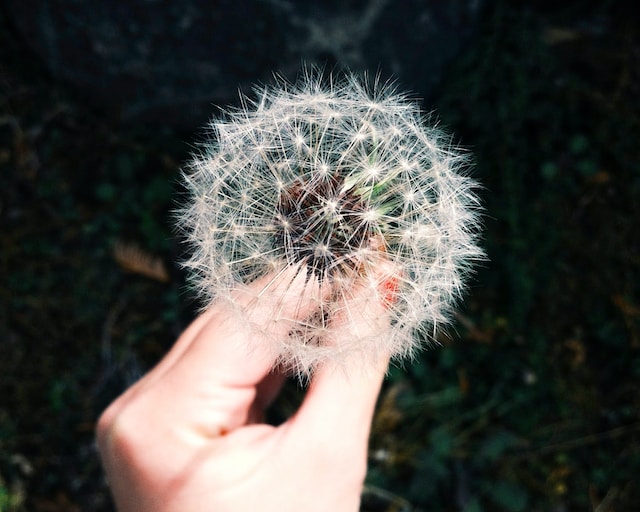
3. Medications
For immediate relief, medications such as antihistamines, decongestants, and nasal corticosteroids can be prescribed. These drugs help alleviate symptoms like sneezing, congestion, and itchy eyes.
4. Immunotherapy
For long-term relief, Dr. Hadjiev offers immunotherapy, commonly known as allergy shots. These shots gradually desensitize your immune system to specific allergens, reducing your body’s overreaction to them. This approach can provide lasting relief and even potentially cure your allergies.
Living Allergy-Free in NYC
1. Seasonal Allergy Tips
To manage your seasonal allergies in NYC effectively, consider these lifestyle adjustments:
- Check local pollen forecasts and stay indoors on high pollen days.
- Use air-conditioning with HEPA filters to filter out allergens.
- Keep windows closed and use air purifiers in your home.
- Shower and change clothes after spending time outdoors to remove allergens.
- Consider wearing a pollen mask when doing yard work or spending time in parks.
2. Regular Check-ups
Regular follow-up appointments with Dr. Hadjiev are essential for monitoring your progress and adjusting your treatment plan as needed. Allergies can change over time, and your treatment should evolve accordingly.
Contact NYC’s Top Allergist for Seasonal Allergies: Dr. Boyan Hadjiev
Don’t let seasonal allergies disrupt your life in the city that never sleeps. Dr. Boyan Hadjiev, known affectionately as “Dr. Sneeze,” is here to help you find relief. Dr. Hadjiev specializes in diagnosing and treating allergies, offering personalized solutions to fit your needs.
Allergy, Asthma and Sinusitis P.C
Boyan Hadjiev, MD
30 East 40th Street
Suite 1200
New York, NY 10016
212-319-5282
Seasonal Allergies: How to Identify and Manage Common Triggers
If you’re one of the millions of people who suffer from seasonal allergies, you know how frustrating and uncomfortable it can be. The good news is that with the help of an allergist like Dr. Boyan Hadjiev, you can identify your triggers and manage your symptoms more effectively. In this blog post, we’ll explore some common seasonal allergy triggers and how to manage them.
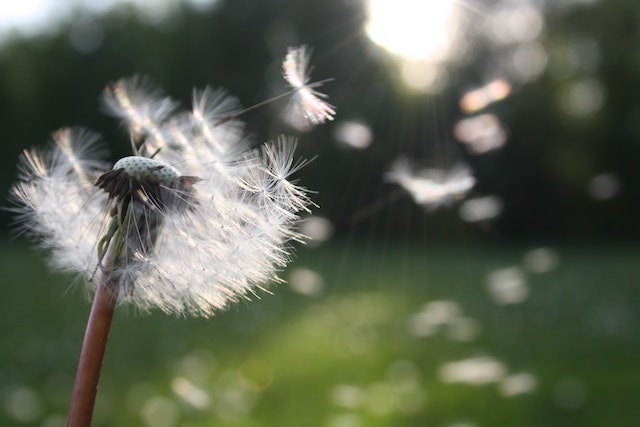
What are seasonal allergies?
Seasonal allergies are a type of allergic rhinitis, also known as hay fever, that is triggered by environmental allergens such as pollen, mold spores, and dust mites. Symptoms can include sneezing, runny or stuffy nose, itchy eyes and throat, and fatigue.
Identifying your triggers
The first step in managing your seasonal allergies is to identify your triggers. This can be done through allergy testing, which can be done through a skin prick test or a blood test. Once you know what you’re allergic to, you can take steps to avoid or reduce your exposure to those allergens.
Common seasonal allergy triggers
Pollen
Pollen is a common trigger for seasonal allergies, particularly in the spring and fall. Trees, grasses, and weeds release pollen into the air to fertilize other plants, and when you breathe it in, it can trigger an allergic reaction.
Mold spores
Mold spores are another common trigger for seasonal allergies, particularly in the spring and summer. Mold thrives in warm, humid environments, and can be found both indoors and outdoors.
Dust mites
Dust mites are a common trigger for year-round allergies. These microscopic creatures live in household dust and can trigger allergies when their waste and dead bodies become airborne.
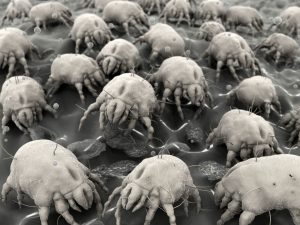
Managing your symptoms
Once you’ve identified your triggers, there are several steps you can take to manage your symptoms.
Avoid allergens
The best way to manage your seasonal allergies is to avoid exposure to your triggers as much as possible. This may involve staying indoors on high pollen days, using air conditioning instead of opening windows, and keeping your home clean and free of dust.
Take medications
Over-the-counter medications such as antihistamines, decongestants, and nasal corticosteroids can help relieve your allergy symptoms. Dr. Hadjiev can work with you to determine which medications are best for your specific symptoms and medical history.
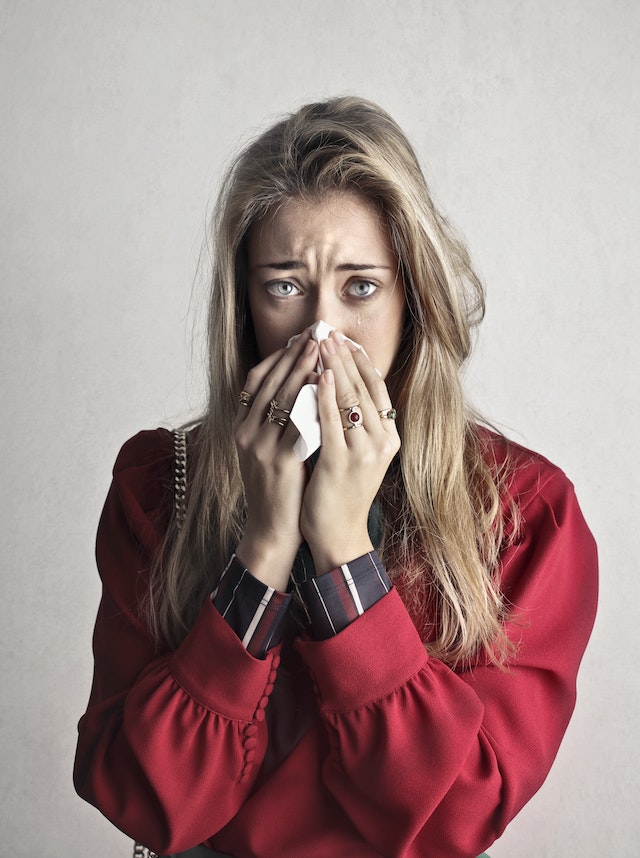
Consider immunotherapy
Immunotherapy, also known as allergy shots or sublingual immunotherapy, can help desensitize you to your allergens over time. This involves regular injections or oral drops that gradually expose you to increasing amounts of your allergens, with the goal of reducing your sensitivity and symptoms over time.
Seasonal Allergies: Identifying & Managing Triggers: Conclusion
Seasonal allergies can be a frustrating and uncomfortable condition, but with the help of an allergist like Dr. Boyan Hadjiev, you can identify your triggers and manage your symptoms more effectively. By avoiding allergens, taking medications, and considering immunotherapy, you can reduce your symptoms and improve your quality of life.
If you’re in the New York City area and looking for a knowledgeable and experienced allergist, schedule an appointment with Dr. Sneeze, Dr. Boyan Hadjiev today!
Allergy, Asthma and Sinusitis P.C
Boyan Hadjiev, MD
30 East 40th Street
(Btwn Madison and Park)
Suite 1200
New York, NY 10016
212-319-5282
Serving all of New York City and the Tri State Area including Zip Codes: Top Allergist NYC Midtown, Chelsea and Clinton: 10001, 10011, 10018, 10019, 10020, 10036 | Gramercy Park and Murray Hill: 10010, 10016, 10017, 10022 | Greenwich Village and Soho: 10012, 10013, 10014 | Lower Manhattan: 10004, 10005, 10006, 10007, 10038, 10280 | Lower East Side: 10002, 10003, 10009 | Upper East Side: 10021, 10028, 10044, 10128 | Upper West Side: 10023, 10024, 10025
